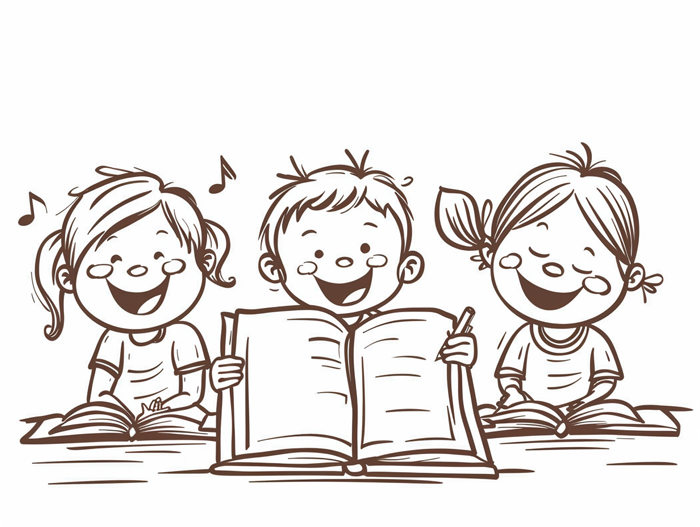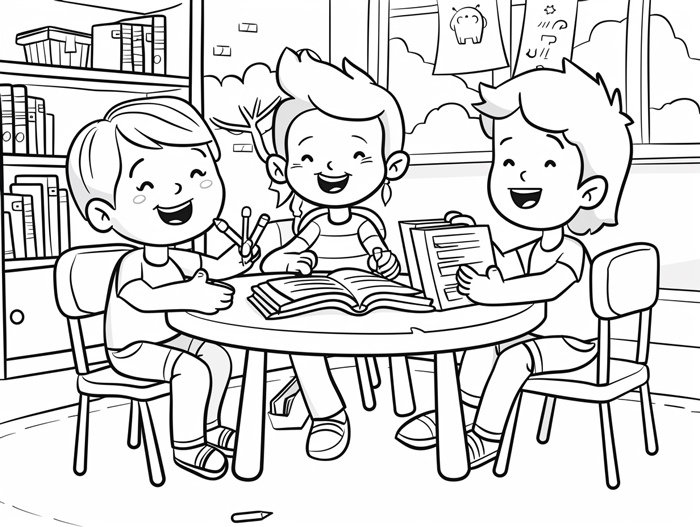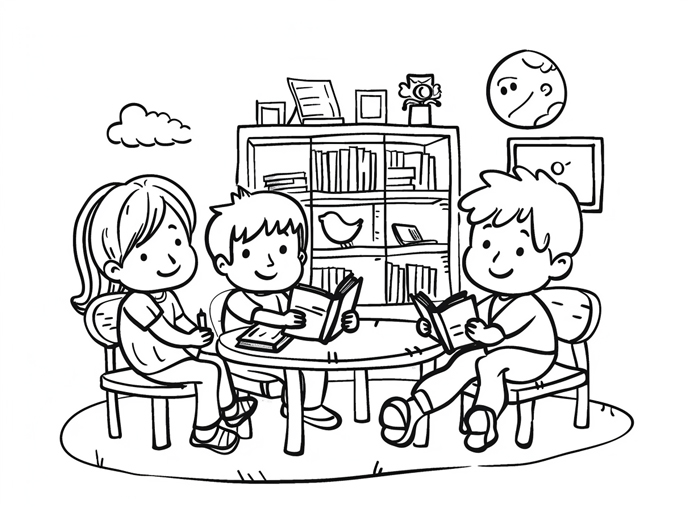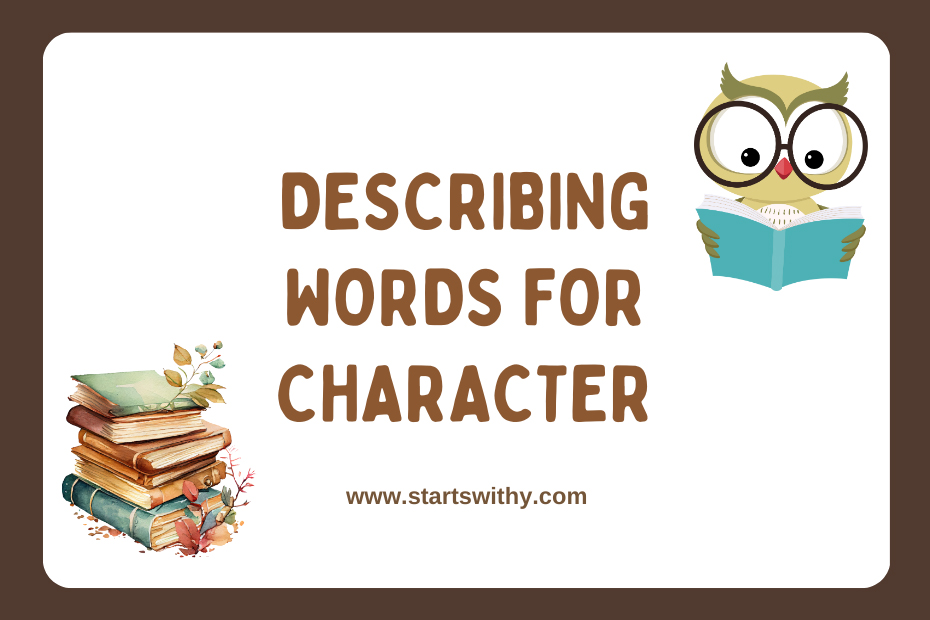When it comes to describing someone’s character, words have the power to paint a vivid picture. From the way they interact with others to their core values, adjectives play a crucial role in capturing the essence of a person’s character. In this article, I’ll explore a range of adjectives that can be used to describe different aspects of character, offering you a toolkit to better understand and articulate the qualities that make individuals unique.
Character is a multifaceted concept, encompassing a person’s personality, behavior, and moral compass. It’s the sum of their traits, virtues, and flaws that shape who they are. Whether you’re trying to describe a fictional character in a story or seeking the right words to capture someone’s character in real life, having a diverse range of adjectives at your disposal can help you convey their essence with precision and impact.
How to Describe Character? – Different Scenarios

When it comes to describing character, it’s important to consider different scenarios in order to provide a well-rounded picture. Here are some examples of how you can effectively describe character in various situations:
- In a Job Interview: When describing character traits in a job interview, it’s important to focus on qualities that demonstrate one’s suitability for the role. Some adjectives to consider include:
- Dependable: reliable and trustworthy.
- Adaptable: able to adjust to new situations.
- Motivated: driven and self-motivated.
- In a Personal Recommendation: If you’re writing a personal recommendation for someone, you’ll want to highlight their positive character traits. Here are some examples:
- Kind: showing a considerate and compassionate nature.
- Honest: always telling the truth and acting with integrity.
- Responsible: taking ownership of their actions and commitments.
- In a Story or Novel: When describing characters in a story or novel, the goal is to create vivid and memorable personalities. Consider using descriptive adjectives like:
- Courageous: brave and willing to take risks.
- Quirky: unique and unconventional in their behavior.
- Charismatic: having a compelling and charming presence.
- In a Classroom Setting: For teachers looking to describe character traits to young students, it’s essential to use simple, easy-to-understand language. Here are some examples:
- Friendly: showing kindness and a willingness to be helpful.
- Patient: able to wait calmly and without frustration.
- Honest: always telling the truth and being trustworthy.
These examples illustrate the different scenarios in which character descriptions are important and provide a diverse range of adjectives to convey the essence of a person’s character. Remember, when describing character, it’s crucial to choose adjectives that accurately capture the qualities you want to portray.
Describing Words for Character in English
When it comes to describing someone’s character, it’s important to have a diverse range of adjectives at your disposal. Character is a complex concept that includes various aspects, such as personality, behavior, and moral compass. As a preschool or kindergarten teacher, it’s crucial to teach young children about different character traits using descriptive words. In this section, I’ll share some effective adjectives that can be used to describe character in English.

Positive Character Traits:
- Kind: Someone who is kind is compassionate and considerate towards others. They show empathy and care for people’s feelings.
- Honest: An honest person always tells the truth and does not engage in deception or deceit. They are trustworthy and reliable.
Negative Character Traits:
- Greedy: A greedy person is always wanting more and is unwilling to share or be generous. They prioritize their own interests above others.
- Lazy: A lazy person avoids work or effort and lacks motivation. They prefer to do as little as possible.
Neutral Character Traits:
- Adventurous: An adventurous person is always seeking new experiences and is open to taking risks. They have a thirst for excitement and exploration.
- Balanced: A balanced person has a stable and well-rounded approach to life. They can manage their emotions and make rational decisions.
Using these adjectives, you can help children understand different character traits and encourage them to identify and value positive qualities in themselves and others. By incorporating these words into your teaching materials and activities, you can create a meaningful and engaging learning environment.
Adjectives for Character
As a preschool teacher, I know how important it is to teach young children about different character traits. Using descriptive words or adjectives can be a powerful tool in creating an engaging learning environment. In this section, I will provide you with a list of positive and negative adjectives for character that you can use to teach kids about different aspects of personality, behavior, and moral compass.

Positive Adjectives for Character
Here are 12 positive adjectives for character along with example sentences:
| Adjective | Example Sentence |
|---|---|
| Honest | Sarah always tells the truth. |
| Kind | Alex is very kind to his friends. |
| Brave | Maya showed bravery when she stood up for her beliefs. |
| Generous | Ethan is always sharing his toys with others. |
| Responsible | Lily is a responsible student who always completes her homework. |
| Helpful | Jack is always willing to help his classmates with their work. |
| Respectful | Emily is respectful to everyone she meets. |
| Caring | Michael is very caring towards animals. |
| Courageous | Sophie showed courage when she stood up to the bully. |
| Patient | Anna patiently waits for her turn during games. |
| Creative | Jacob’s artwork shows his creativity. |
| Tolerant | Ava is tolerant of others’ differences. |
Negative Adjectives for Character
Here are 5 negative adjectives for character along with example sentences:
| Adjective | Example Sentence |
|---|---|
| Dishonest | John lied about breaking the toy. |
| Mean | Amanda is mean to her classmates. |
| Cowardly | Mark ran away instead of facing his fears. |
| Selfish | Emma only thinks about herself, not others. |
| Disrespectful | Max is disrespectful to his teachers. |
Using these adjectives, you can start conversations with your students about the importance of displaying positive character traits and the consequences of negative ones. Remember to use age-appropriate examples and encourage open discussions on how these traits can impact relationships and interactions with others.
Teaching young children about character is an ongoing process, and incorporating descriptive words into your lessons can make it more engaging and memorable for them.
Synonyms and Antonyms with Example Sentences

Synonyms for Character
When it comes to teaching young children about character, using a variety of descriptive words can be highly beneficial. It helps them understand different aspects of behavior and develop their vocabulary skills. Here are some synonyms for character traits that you can incorporate into your lessons:
| Character Trait | Synonym |
|---|---|
| Kind | Caring |
| Honest | Sincere |
| Brave | Courageous |
| Generous | Giving |
| Responsible | Dependable |
For example, instead of simply telling your students to be kind, you can use the synonym “caring” to emphasize the importance of showing empathy and concern for others. Try using sentences like:
- “It’s important to be caring and think about how our actions affect others.”
- “Being sincere means always telling the truth, even when it’s difficult.”
- “Brave people are courageous and don’t let fear stop them from doing what’s right.”
By incorporating these synonyms into your teaching, you can enhance your students’ understanding of positive character traits and inspire them to exhibit these qualities in their daily lives.
Antonyms for Character
Teaching young children about character isn’t just about emphasizing positive traits; it also involves discussing negative behaviors and their consequences. Introducing antonyms for character traits can help students recognize and avoid negative behaviors. Here are some antonyms for character traits that you can discuss with your students:
| Character Trait | Antonym |
|---|---|
| Kind | Mean |
| Honest | Dishonest |
| Brave | Cowardly |
| Generous | Selfish |
| Responsible | Irresponsible |
By teaching the opposite of positive character traits, you can help students understand the importance of making good choices and avoiding negative behaviors. Encourage them to reflect on the consequences of negative actions and discuss how they can make better choices in the future. Use sentences like:
- “Being mean is the opposite of being kind. We should always strive to be kind and considerate.”
- “Dishonesty can hurt others and damage trust. It’s important to be honest in all situations.”
- “Cowardly behavior is the opposite of bravery. Let’s be courageous and face our fears.”
By incorporating these antonyms into your discussions on character, you can deepen your students’ understanding of the impact of their actions and guide them towards making positive choices. Remember, teaching character traits is an ongoing process, and incorporating descriptive words can make your lessons more engaging and effective.
Conclusion
Using adjectives to describe someone’s character is a powerful tool in teaching young children about positive and negative traits. By providing a list of synonyms and antonyms for character traits, along with example sentences, we can enhance students’ understanding and inspire them to exhibit positive qualities in their daily lives.
Incorporating descriptive words into lessons not only makes them more engaging but also more effective. By discussing the consequences of negative behaviors and guiding students towards making positive choices, we can help shape their character and promote a healthy and respectful learning environment.
Teaching character traits is an ongoing process, and the use of adjectives can play a significant role in this journey. By consistently using descriptive words to describe character traits, we can foster a deeper understanding of the impact our actions have on ourselves and others.
Incorporating adjectives into character education not only expands students’ vocabulary but also encourages them to reflect on their own behavior and strive for personal growth. By empowering them with the right words, we can shape the next generation to be compassionate, empathetic, and responsible individuals.



